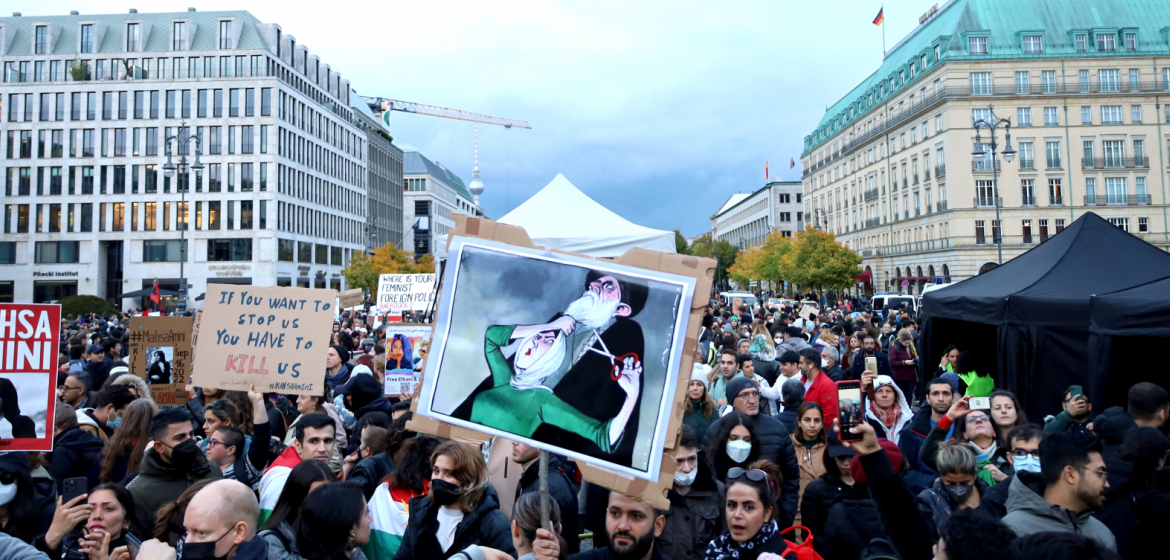For almost two months now, the Islamic Republic of Iran finds itself in the middle of the most severe protests since the 1979 revolution. Sparked by the violent death of the young Kurdish Iranian Mahsa Jina Amini on September 16th following her arrest by the morality police, protests erupted all over the country. The young woman's death, however, was neither the first of its kind nor the sole cause for this unprecedented movement but merely a trigger, releasing decades of a much deeper, popular anger over a cleptocratic, oligarchic and nepotic regime, that is not only built on the systematic discrimination against half of its population but also increasingly fails to cater to the socio-economic, social and political needs of its citizens. Soon, these demonstrations were no longer only demanding justice for Amini or reforms to the strict Islamic dresscode but an end to the very existence of the Islamic Republic, leading activists and experts alike to speak of a "revolutionary process" if not already a full-fledged feminist revolution.
With this event, we would on the one hand like to take a closer look at the underlying issues leading to the protests, how they developed and what makes them different from previous waves, such as the so called "Green Movement" in 2009, the "Dey Protests" in 2017/18 and the "Aban Protests" in 2019, turning them into an actual threat to the regime. On the other hand, we would like to discuss scenarios how the situation will progress and key developments to look out for, as well as ways to show solidarity with the protesters and what "the West" can do to best support Iranians in their struggle.
We are very happy to welcome the following activists and experts on our panel:
Daniela Sepehri is a Social Media Manager and activist using her Instagram plattform to inform about racism, feminism and migration as well as the situation in Iran, where she has become one of the most prominent voices of the Iranian diaspora in recent weeks.
Dr. Ali Fathollah-Nejad is a political scientist focusing on Iran, the Middle East and the world order, currently affiliated with the American University of Beirut's Issam Fares Institute as well as Freie Universität Berlin. He holds a PhD in International Relations from SOAS, has published several hundred articles and is a frequent speaker at academic conferences, political forums and in the media.
Sanaz Azimipour is an activist and co-founder of the campaign “not without us 14 percent”, advocating for voting rights for everyone in Germany. She has a background in business mathematics and gender studies and preferred writing topics are intersectionality and social justice.
The event will take place in a hybrid format. You can either attend it physically in our Berlin-Kreuzberg office or online. We would kindly ask you to register here, as there is only a limited number of places available.
The event is a cooperation between Alsharq and dis:orient.
















